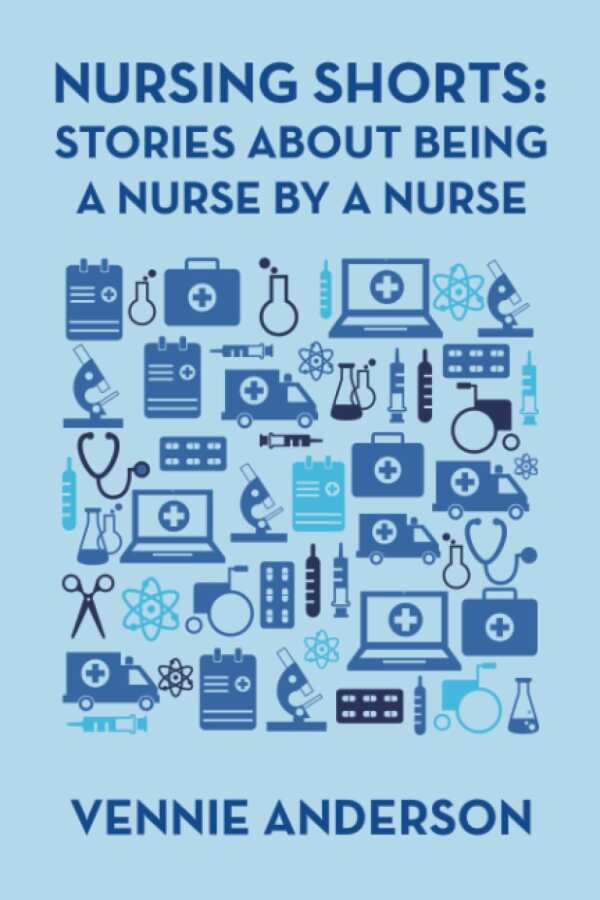Nursing Shorts
Stories About Being a Nurse by A Nurse
The memoir Nursing Shorts is enlightening as it looks back on a half century of medical field changes and evolutions.
Vennie Anderson’s career memoir Nursing Shorts is centered in interesting events in the late twentieth century.
Anderson always wanted to be a nurse, but that desire increased after a summer she spent working as a nurse’s aide at a local hospital. Still, during college, she first studied to become a teacher. The experience was miserable and lasted only eighteen months, after which she began nursing studies in earnest and excelled. In the decades following her graduation, through to her retirement in 2000, she immersed herself in her career. Even after leaving the profession, she volunteered her nursing services at her church.
Though it is divided into three portions that focus, respectively, on what led Anderson toward nursing, her training, and her career, the book is most focused on Anderson’s working life itself. The individual sections follow a loose chronology, though, with events merging together in a carefree manner. But they achieve balance in their tones, moving between light and heavy topics and narrating with steady compassion. The tone modulates to match the topic of each portion: it is sometimes breezy and charming, and is at other times solemn and earnest. Medical terminology is frequent, but is contextualized for lay readers.
Of note are Anderson’s observations about the changes that took place within her field across decades. She recalls that there was some stigma around the profession during her young adulthood: when she told a guidance counselor about her ambitions, for example, she was declared “too smart” for the field. She also encountered sexual and workplace harassment from doctors who felt they were superior. But she comments that much of the field has evolved since those challenging early working days. Still, there are holdovers in the book from that earlier time: when it chronicles Anderson’s work at an institution for children with severe developmental disabilities, for example, it includes insensitive observations, as of a “teenaged boy with the mind of a plant”––thoughts recalled with expressed guilt, though ones that are nonetheless troubling.
More timeless are the book’s notes on patient education, a field that Anderson entered early in its inception, when she took the role of a patient education coordinator. As she details how the field grew and expanded in her time within it, her observations are captivating. Her anecdotes also illustrate the importance of the field: she recalls how a diabetic woman left the hospital without knowing how to care for herself, leading to continued issues. Such astute reflections feed into the book’s reflective ending, which look’s back on Anderson’s career years with a sense of personal fulfillment and happy self-realization.
Set during a period when the field was in flux, the memoir Nursing Shorts is enlightening as it looks back on a half century of medical field changes and evolutions.
Reviewed by
Carolina Ciucci
Disclosure: This article is not an endorsement, but a review. The publisher of this book provided free copies of the book and paid a small fee to have their book reviewed by a professional reviewer. Foreword Reviews and Clarion Reviews make no guarantee that the publisher will receive a positive review. Foreword Magazine, Inc. is disclosing this in accordance with the Federal Trade Commission’s 16 CFR, Part 255.

